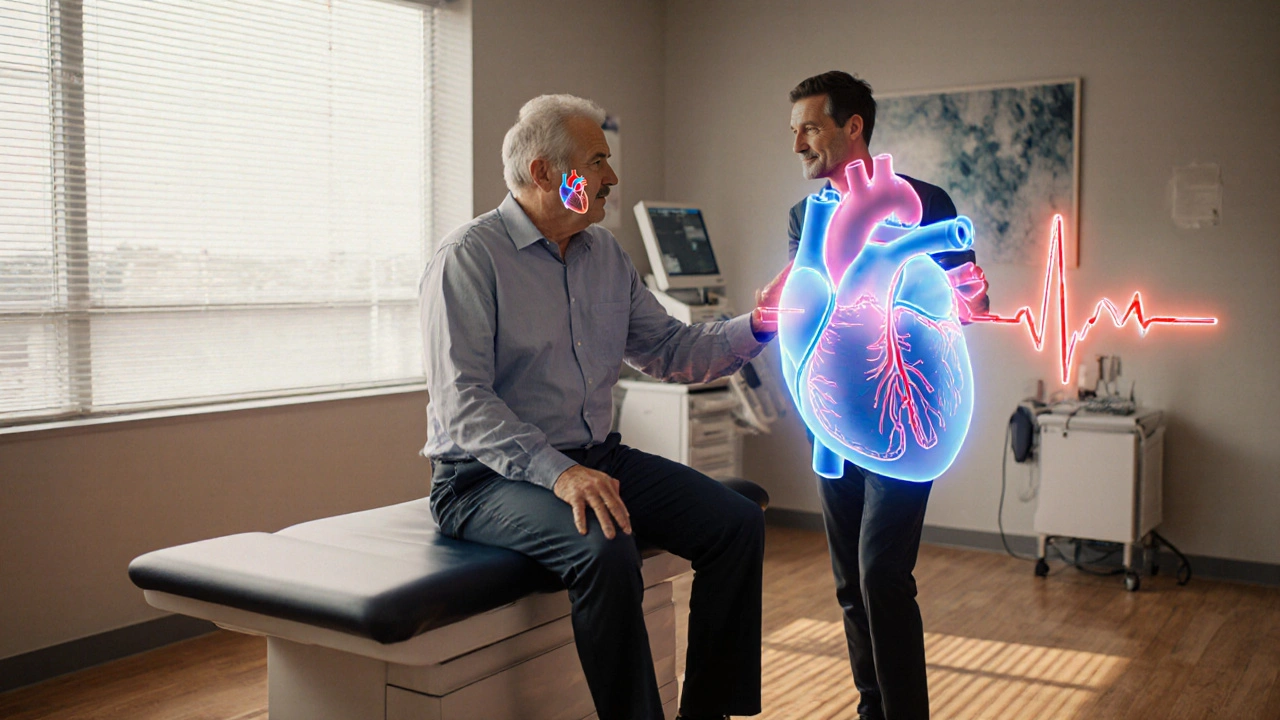Arrhythmia Management: How to Control Irregular Heartbeats with Medication and Lifestyle
When your heart skips, races, or beats unevenly, you're dealing with arrhythmia management, the process of diagnosing, treating, and monitoring irregular heart rhythms to prevent complications like stroke or heart failure. Also known as heart rhythm control, it’s not one-size-fits-all—what works for someone with occasional fluttering may be useless—or dangerous—for someone with persistent atrial fibrillation.
At the core of arrhythmia management are beta blockers, medications that slow heart rate and reduce the workload on the heart by blocking adrenaline. Common ones like metoprolol or atenolol don’t cure arrhythmias, but they keep them from spinning out of control, especially in people with high blood pressure or a history of heart attack. Then there are antiarrhythmic drugs, a group of medicines designed to reset or stabilize the heart’s electrical signals. Drugs like amiodarone or flecainide can be powerful, but they come with serious risks, including the chance of causing worse arrhythmias. That’s why doctors don’t start here—they weigh symptoms, heart structure, and other conditions like thyroid disease or sleep apnea before choosing.
Arrhythmia management also means looking beyond pills. atrial fibrillation, the most common type of arrhythmia, often links to lifestyle factors like alcohol, caffeine, obesity, and uncontrolled stress. Cutting back on alcohol isn’t just advice—it’s a proven way to reduce episodes. Losing even 10% of body weight can cut AFib burden in half. And while you might think of blood thinners like warfarin or apixaban as separate from rhythm control, they’re part of the same picture—preventing clots that form when the heart doesn’t pump properly.
Some people need devices—pacemakers to fix slow rhythms, or ICDs to shock the heart back into rhythm during dangerous spikes. Others benefit from procedures like ablation, where a catheter burns off tiny areas of heart tissue causing the misfires. But not everyone needs these. Many live fine with meds and simple changes. The key is knowing your type of arrhythmia, what triggers it, and what your real risks are. A skipped beat after coffee? Probably harmless. A racing heart that won’t settle, with dizziness or chest pressure? That’s a red flag.
What you’ll find in the posts below isn’t a textbook. It’s real-world comparisons: how one drug stacks up against another, what side effects actually matter, and how conditions like kidney disease or thyroid problems change the game. You’ll see how anticoagulants, steroids, and even antibiotics can interact with heart rhythm meds. No fluff. Just what you need to ask your doctor the right questions—and understand the answers.
